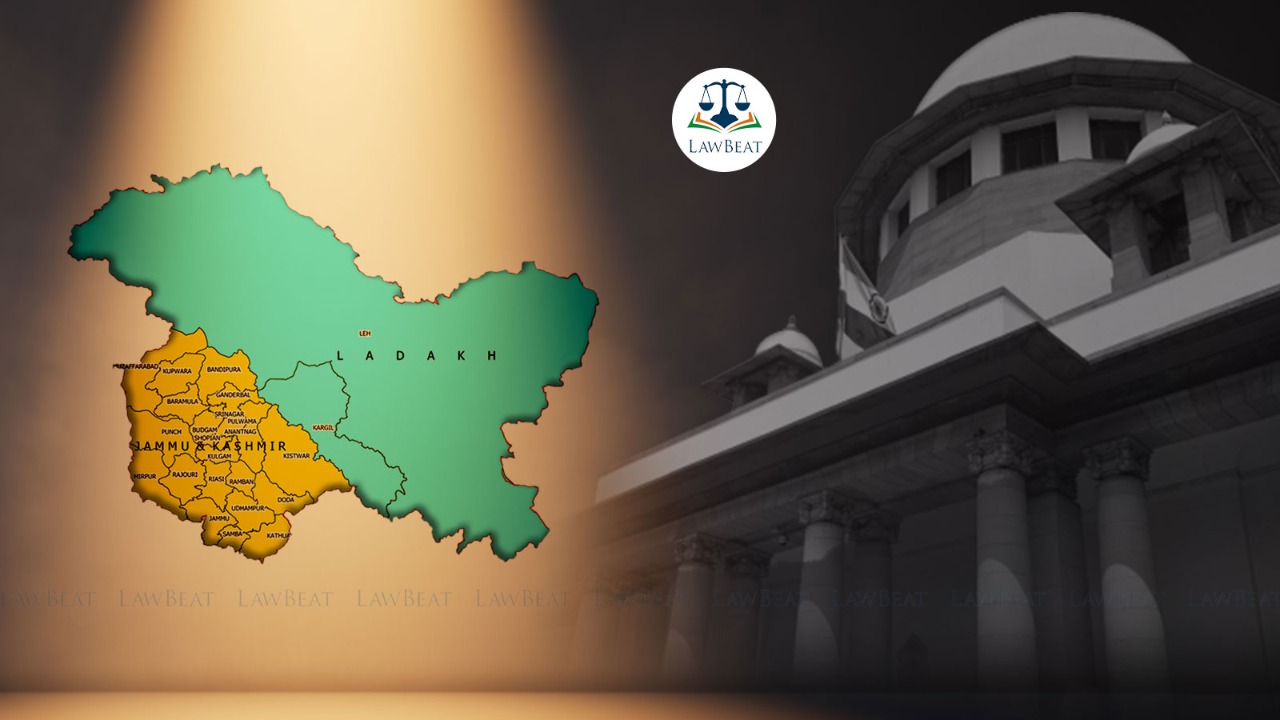J&K residents move Supreme Court challenging governments' decision to take up delimitation in the Union Territory

A plea has been filed before Supreme Court of India seeking a direction in the nature of Writ of Mandamus declaring the increase of number of seats from 83 to 90 i.e., (107 to 114 including 24 seats in Pakistan Occupied Kashmir) in Union Territory of Jammu & Kashmir by the central government is ultra vires the Articles 81, 82, 170, 330 and 332 and Section 63 of the Jammu & Kashmir Re-organisation Act, 2019.
"While Art. 170 of the Constitution of India provides that the next delimitation in the country will be taken up after 2026, why has the UT of Jammu and Kashmir been singled out?", the plea questions.
It is further sought that the notification on constituting the Delimitation Commission to take up delimitation in the UT of J&K is unconstitutional as it amounts to classification and violates Article 14.
Delimitation means the act or process of fixing limits or boundaries of territorial constituencies in a country or a province having a legislative body.
The plea filed by Haji Abdul Gani Khan and Dr. Mohammad Ayub Mattoo, both of who are residents of J&K further seeks a declaration that the constitution of the Delimitation Commission u/s 3 of the Delimitation Act, 2002, is without power, jurisdictions and authority.
It is the case of the petitioners that since the last Delimitation Commission was set up on 12th July 2002, as per section 3 of the Delimitation Act, 2002, after the 2001 Census to carry out the exercise throughout the country, the Commission had clearly stated that the total number of existing seats in the Legislative Assemblies of all states, including UTs of the National Capital Region and Pondicherry, as fixed based on the 1971 census shall remain unaltered till the first census to be taken after the year 2026.
Furthermore, the plea argues that since the notification originally included the names of Assam, Arunachal Pradesh, Manipur and Nagaland, their subsequent omission from the process of delimitation and conducting delimitation only for Union Territory of Jammu & Kashmir is unconstitutional as it amounts to classification as held in Subramanian Swamy case.
Filed through M/S LAWFIC, the plea states that the Centre has usurped the powers that originally vest with the Election Commission of India.
The petitioner further argue that the MHA, Ministry of Law and Justice and the ECI have no power, authority or jurisdiction to establish a Delimitation Commission u/s 3 of the delimitation Act 2002 which had become inappropriate by the year 2007 ''when the commission was wound up'' and after which the Delimitation of Parliamentary and Assembly Constituencies Order was issued in 2008, following due procedure, thereby any power exercise by them is without any Statutory or Constitutional source of power.
"According to Election Laws, it is only the Election Commission that must carry out the process of delimitation (necessary updation) after the Parliamentary and Assembly Constituencies Delimitation Order, 2008 is notified. Nobody is competent to carry out the delimitation process since the delimitation has been completed and the Delimitation Commission itself has become inappropriate....", adds the plea.
Referring to the decision of re-organisation of the state which aimed to unite the Jammu and Kashmir with India, the plea question as to why the delimitation process defeats “new order” of One Nation One Constitution in the country.
The plea has been drawn by Senior Advocate Ravi Shankar Jandhyala.
Case Title: Haji Abdul Gani Khan & Anr. vs. Union of India & Ors.
